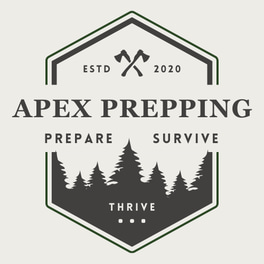Being prepared for emergencies is essential.
Here's a list of important first aid items that preppers should consider stockpiling:
Adhesive Bandages: Various sizes to cover different wounds.
Sterile Gauze Pads and Adhesive Tape: For wound dressing and securing bandages.
Antiseptic Wipes and Solution: To clean wounds and prevent infections.
Cotton Balls and Swabs: For cleaning wounds and applying ointments.
Disposable Gloves: To protect yourself and others when providing first aid.
Tweezers and Scissors: For removing splinters, cutting tape, or trimming bandages.
Instant Cold Packs: To reduce swelling and provide pain relief.
Antibiotic Ointment: To prevent infection in minor wounds.
Burn Cream: Specifically designed for treating burns and scalds.
Hydrocortisone Cream: For relieving itching and skin irritation.
Eye Wash Solution: For flushing out foreign particles from the eyes.
Saline Solution: For cleaning wounds and irrigating eyes.
Triangular Bandages and Splints: To immobilize fractures and provide support.
CPR Face Shield or Mask: For performing CPR safely.
Emergency Blankets: To keep patients warm and prevent hypothermia.
First Aid Manual: Providing instructions for basic first aid procedures.
Prescription Medications: A supply of essential medications for chronic conditions.
Pain Relievers: Over-the-counter pain relievers like ibuprofen and acetaminophen.
Antihistamines: For allergic reactions and allergy symptoms.
Oral Rehydration Salts: To prevent dehydration in case of diarrhea or vomiting.
Medical Supplies: Such as syringes, thermometers, and blood pressure monitors.
First Aid Kits: Portable kits with basic supplies for on-the-go emergencies.
Emergency Medical Information: Copies of important medical records and emergency contacts.
Multi-tool or Swiss Army Knife: Useful for various tasks, including cutting cloth or opening packages.
Tourniquet: In case of severe bleeding, a tourniquet can help stop the flow of blood.
N95 Masks and Face Shields: For protection against airborne contaminants.
Alcohol-based Hand Sanitizer: For hand hygiene when soap and water are not available.
Emergency Whistle: To attract attention if you need help.
Duct Tape: Can be used for various emergency repairs, including securing bandages.
Prescription Glasses or Contacts: If you wear glasses or contacts, having a spare pair can be crucial.
Remember, it's not just about having these items; it's also essential to know how to use them. Consider taking a basic first aid and CPR course to be well-prepared to handle emergency situations.
